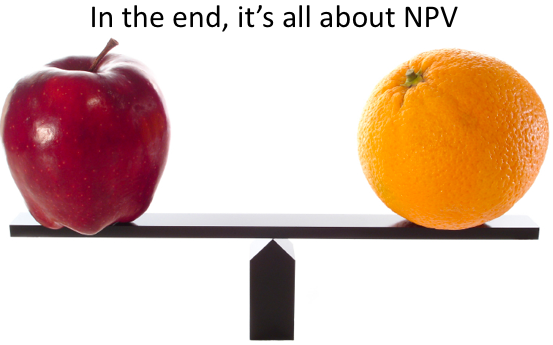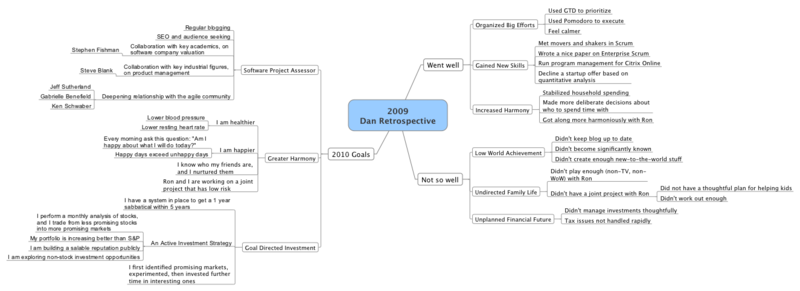-

Enterprise Scrum: Scrum Gathering
On 9 March 2010, I gave a talk on Enterprise Scrum at the 2010 US Scrum Gathering in Orlando, Florida. I am grateful that about 50 people showed up for my talk, from about 300 total Scrum Gathering attendees. People were intrigued by fractal thinking, by the blunt assertion that engineering teams rapidly burn money,…
-
Pushing Agility Upstream
Most agile teams live in a waterfall ecosystem. When powerful stakeholders—like business partners, customers, other departments or executives—demand future commitments, while interrupting contributors with unprioritized demands, smart Scrum teams raise a protective shield. They make the Product Owner manage stakeholder priorities, and make the ScrumMaster defend them against interference. If anyone provides a date to…
-

Personal 2009 Retro/2010 Planning
Dan Greening 2009 Retrospective Mind Map My yearly retrospective mind map summarizes what went well and badly in 2009, and what I plan to do in 2010. Click the image to see the full view. I plan to iterate in 2010, with monthly or shorter sprints, progressing each month to make usable progress on as…
-

Marketing Scrum Experimentation
Agile methods can organize marketing efforts: asset production, brand development, strategic brand alignment. However, it may not be a perfect fit: marketing tasks are often short-lived; “debt” is a different concept; prioritizing is perhaps more important, estimation less so. We are experimenting with these concepts at Citrix Online. We hope to gain insight by looking…
-

Scrum Self-Similarity: Creating Organizational Fractals
Scrum exhibits fractal self-similarity, a property you can use to scale Scrum. Large organizations can deliver higher corporate productivity, revenues and agility in the face of rapidly changing markets. Everything scales, including the challenges. We use a unique Enterprise Scrum process at Citrix Online (we are aware of no other organization using it) to manage…
-

Andy Warhol explains Incremental and Iterative Development
In any project, you should complete your your work in stages. This lets you show customers (those who pay) and users (who might not pay) your work in progress, to ensure you satisfy their initial expectations and adapt to new ones. You will likely stage your project incrementally or iteratively. Most people don’t know the…
